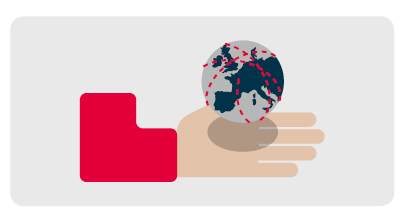Having drawn from the expertise of Atradius Collections' local offices, the International Debt Collections Handbook explains the different regulations and procedures for debt collections in the UAE.
Amicable collections
General information

We recognise that every client has different needs, and therefore our services are tailored to the clients’ specific requirements. We follow proven principles of negotiations. Keeping close contact with debtors, we are able to evaluate genuine cash flow problems and stalling excuses for non-payment and persuade debtors to pay the debts in an amicable manner. Field visits and face-to-face meetings with the debtors are an integral part of our collection initiatives.
Interest
Though the chief justice of the Supreme Court in a suit filed by a bank for recovery ruled that ordering the borrower to pay interest for late payments can be considered a sort of damages, which is compliant with both UAE law and Sharia’s, from a cultural point of view and in practice, debtors in the UAE do not pay interest on delayed payments.
Debt collection costs
From a cultural point of view and in practice, debtors in the UAE do not pay collection costs.
The Debt Collections Handbook presents a snapshot of UAE's economic situation and covers the following topics:
- Legal procedures
- Time frame and outcomes
- Insolvency proceedings
- Key changes under the New Bankruptcy Law
To read more about steps and procedures undertaken in debt collections in the UAE and other countries:
